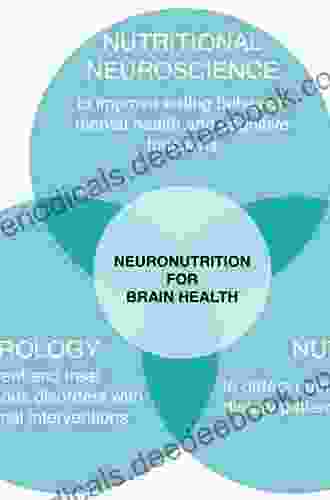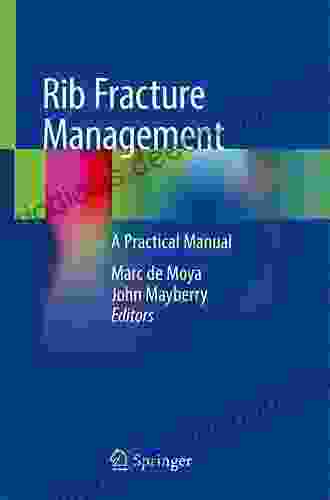Nutrition in Neurologic Disorders: A Practical Guide to Improve Patient Outcomes

Neurologic disorders are a diverse group of conditions that affect the nervous system. They can range in severity from mild to life-threatening, and they can affect people of all ages. Many neurologic disorders are associated with malnutrition, which can worsen the symptoms of the disorder and lead to further health complications.
This practical guide provides an overview of the nutritional needs of people with neurologic disorders. It discusses the causes of malnutrition in neurologic disorders, the nutritional assessment process, and the dietary recommendations for people with specific neurologic disorders. The guide also includes information on enteral and parenteral nutrition, which may be necessary for people who are unable to meet their nutritional needs through oral intake.
There are a number of factors that can contribute to malnutrition in neurologic disorders. These factors include:
4.6 out of 5
| Language | : | English |
| File size | : | 2043 KB |
| Text-to-Speech | : | Enabled |
| Screen Reader | : | Supported |
| Enhanced typesetting | : | Enabled |
| Print length | : | 213 pages |
- Dysphagia: Difficulty swallowing is a common problem in people with neurologic disorders. Dysphagia can make it difficult to eat and drink enough food to meet nutritional needs.
- Anorexia: Loss of appetite is another common problem in people with neurologic disorders. Anorexia can be caused by a number of factors, including the disorder itself, medications, and depression.
- Nausea and vomiting: Nausea and vomiting can also contribute to malnutrition in people with neurologic disorders. These symptoms can make it difficult to keep food down, which can lead to weight loss and dehydration.
- Increased metabolic needs: Some neurologic disorders, such as Parkinson's disease and multiple sclerosis, can increase the body's metabolic needs. This can make it difficult to maintain a healthy weight, even if the person is eating enough food.
The nutritional assessment process is a comprehensive evaluation of a person's nutritional status. The assessment includes a physical examination, a dietary history, and a laboratory evaluation. The physical examination can help to identify signs of malnutrition, such as weight loss, muscle wasting, and skin changes. The dietary history can help to identify problems with the person's diet, such as inadequate intake of calories, protein, or vitamins. The laboratory evaluation can help to identify nutrient deficiencies and other medical conditions that may be contributing to malnutrition.
The dietary recommendations for people with neurologic disorders vary depending on the specific disorder and the person's individual needs. However, there are some general dietary recommendations that apply to most people with neurologic disorders. These recommendations include:
- Eat a healthy diet that is high in fruits, vegetables, and whole grains. These foods are good sources of vitamins, minerals, and antioxidants.
- Choose lean protein sources. Lean protein sources, such as fish, chicken, and beans, are important for maintaining muscle mass.
- Limit unhealthy fats. Unhealthy fats, such as saturated and trans fats, can increase the risk of heart disease and other chronic health problems.
- Choose low-sodium foods. Sodium can raise blood pressure, which can worsen the symptoms of some neurologic disorders.
- Drink plenty of fluids. Fluids help to prevent dehydration and maintain electrolyte balance.
Enteral nutrition is a method of providing nutrition through a tube that is inserted into the stomach or small intestine. Enteral nutrition may be necessary for people who are unable to meet their nutritional needs through oral intake. There are two main types of enteral nutrition:
- Nasogastric tube feeding: A nasogastric tube is inserted through the nose and into the stomach.
- Gastrostomy tube feeding: A gastrostomy tube is inserted through the abdomen and into the stomach.
Enteral nutrition can be used to provide short-term or long-term nutrition. The type of enteral nutrition that is used will depend on the person's individual needs.
Parenteral nutrition is a method of providing nutrition through a vein. Parenteral nutrition may be necessary for people who are unable to meet their nutritional needs through oral intake or enteral nutrition. Parenteral nutrition is typically used for short-term periods of time, such as when a person is recovering from surgery or is critically ill.
Nutrition is an important part of the management of neurologic disorders. Malnutrition can worsen the symptoms of the disorder and lead to further health complications. The nutritional assessment process can help to identify malnutrition and determine the best course of treatment. The dietary recommendations for people with neurologic disorders vary depending on the specific disorder and the person's individual needs. Enteral and parenteral nutrition may be necessary for people who are unable to meet their nutritional needs through oral intake.
By following the recommendations in this guide, you can help to improve the nutritional status of people with neurologic disorders and improve their overall health outcomes.
4.6 out of 5
| Language | : | English |
| File size | : | 2043 KB |
| Text-to-Speech | : | Enabled |
| Screen Reader | : | Supported |
| Enhanced typesetting | : | Enabled |
| Print length | : | 213 pages |
Do you want to contribute by writing guest posts on this blog?
Please contact us and send us a resume of previous articles that you have written.
 Book
Book Chapter
Chapter Text
Text Story
Story Genre
Genre Reader
Reader Library
Library Paperback
Paperback Magazine
Magazine Sentence
Sentence Bookmark
Bookmark Glossary
Glossary Bibliography
Bibliography Foreword
Foreword Annotation
Annotation Codex
Codex Tome
Tome Classics
Classics Biography
Biography Autobiography
Autobiography Encyclopedia
Encyclopedia Dictionary
Dictionary Thesaurus
Thesaurus Catalog
Catalog Card Catalog
Card Catalog Borrowing
Borrowing Stacks
Stacks Archives
Archives Study
Study Research
Research Scholarly
Scholarly Lending
Lending Reserve
Reserve Rare Books
Rare Books Special Collections
Special Collections Study Group
Study Group Dissertation
Dissertation Storytelling
Storytelling Awards
Awards Theory
Theory George Macdonald
George Macdonald Walter Mosley
Walter Mosley Max Barry
Max Barry Ana Y Ramos Zayas
Ana Y Ramos Zayas Theda Perdue
Theda Perdue Roger Hutchinson
Roger Hutchinson Richard Middleton
Richard Middleton Bryan Cooper
Bryan Cooper Andrew David Stedman
Andrew David Stedman Renee Rigdon
Renee Rigdon William Wordsworth
William Wordsworth Svetlana Quindt
Svetlana Quindt The Great British Sewing Bee
The Great British Sewing Bee Jason Brennan
Jason Brennan C W Grafton
C W Grafton Margaret Rodenberg
Margaret Rodenberg Charles Freericks
Charles Freericks Izabella Brooks
Izabella Brooks Tony Benn
Tony Benn Darrin Keith Bastfield
Darrin Keith Bastfield
Light bulbAdvertise smarter! Our strategic ad space ensures maximum exposure. Reserve your spot today!

 Michael SimmonsRaising Venture Capital for the Serious Entrepreneur: A Comprehensive Guide
Michael SimmonsRaising Venture Capital for the Serious Entrepreneur: A Comprehensive Guide
 Paulo CoelhoPoems In Two Volumes Volume: Decoding the Enigma of Emily Dickinson's Poetic...
Paulo CoelhoPoems In Two Volumes Volume: Decoding the Enigma of Emily Dickinson's Poetic... Chad PriceFollow ·2.7k
Chad PriceFollow ·2.7k Levi PowellFollow ·3.9k
Levi PowellFollow ·3.9k Dan BrownFollow ·5k
Dan BrownFollow ·5k Percy Bysshe ShelleyFollow ·8.1k
Percy Bysshe ShelleyFollow ·8.1k Ben HayesFollow ·12.5k
Ben HayesFollow ·12.5k William GoldingFollow ·11.2k
William GoldingFollow ·11.2k Aaron BrooksFollow ·6.1k
Aaron BrooksFollow ·6.1k Corey HayesFollow ·19.5k
Corey HayesFollow ·19.5k

 Anton Chekhov
Anton ChekhovClarinet Fundamentals: A Systematic Fingering Course for...
Welcome to the exciting world of...

 Gage Hayes
Gage HayesSea Prayer: A Haunting and Heartbreaking Story of...
Sea Prayer, the latest...

 Henry Green
Henry GreenPillars of Society Rosmersholm Little Eyolf When We Dead...
Henrik Ibsen, the towering...

 Robert Reed
Robert Reed10 For 10 Sheet Music Classical Piano Favorites: A...
Learning to play the...
4.6 out of 5
| Language | : | English |
| File size | : | 2043 KB |
| Text-to-Speech | : | Enabled |
| Screen Reader | : | Supported |
| Enhanced typesetting | : | Enabled |
| Print length | : | 213 pages |












